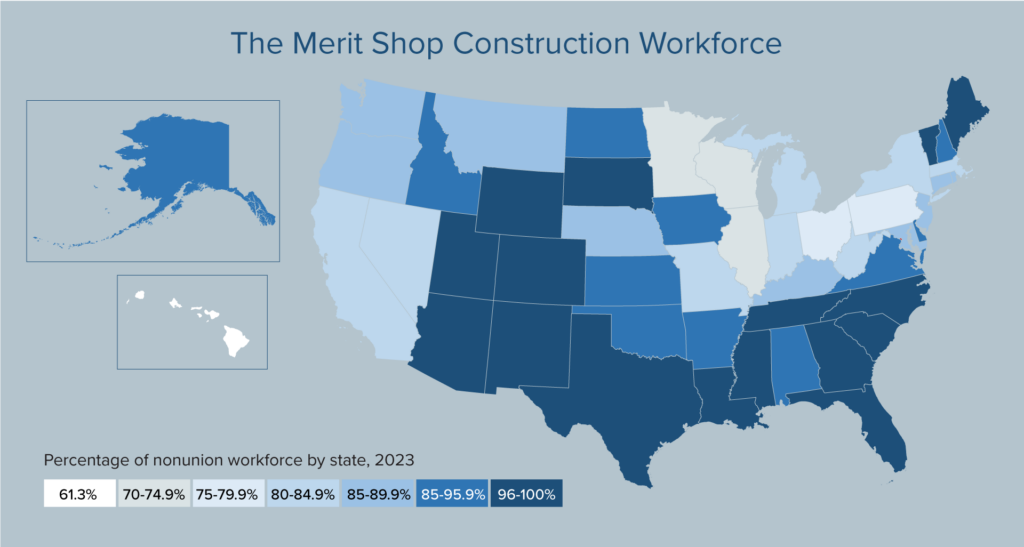
ABC: Less Than 10% of the Construction Workforce Belongs to a Union in 29 States
Associated Builders and Contractors today released an analysis of 2023 state union membership data published by UnionStats.com, which found at least 90% of workers in the private construction industry do not belong to a union in 29 states. That’s up from 26 states in 2022 and 24 states in 2021. Nationally, an all-time high 89.3% of construction workers are not part of a union, according to the U.S. Bureau of Labor Statistics, up from 88.3% in 2022.
“Approximately 7.9 million construction industry professionals did not belong to a union in 2023, and the number of merit shop construction professionals continues to grow year after year,” said Ben Brubeck, ABC vice president of regulatory, labor and state affairs. “President Joe Biden’s exclusionary policies may secure him endorsements from special interest donors and organized labor, but the overwhelming majority of this industry is operating in a nonunion environment. Biden administration policies threaten to inflate construction costs, steer public works contracts to donors with little competition and exacerbate the construction industry’s skilled labor shortage, all of which stand to undermine taxpayer investments in America’s infrastructure, clean energy and manufacturing projects. All qualified contractors and their employees should be encouraged to bid on and build taxpayer-funded construction projects, so they can be awarded based on cost, quality and safety, not union affiliation.”
The states in which at least 90% of the construction workforce does not belong to a union, ranked by the highest percentage of nonunion workers, are: North Carolina, Mississippi, Maine, South Carolina, Texas, Colorado, South Dakota, Vermont, Florida, Georgia, Louisiana, New Mexico, Arizona, Wyoming, Utah, Tennessee, Virginia, Idaho, Arkansas, Alabama, Alaska, Delaware, Oklahoma, Kansas, North Dakota, Iowa, New Hampshire, Kentucky and Montana.
“The Biden administration continues to push unproductive, anti-competitive regulations, like government-mandated project labor agreements on federal and federally assisted construction projects, sweeping overhauls to the government-registered apprenticeship system, the controversial Davis-Bacon final rule, the redefinition of independent contractor status and the unprecedented expansion of labor policies onto private construction projects through federal tax code via the Inflation Reduction Act,” said Brubeck. “Construction industry freedom and choice to affiliate with unions independent of government interference creates immense value for taxpayers and the construction industry, which is why ABC will continue to challenge exclusionary policies and advocate for all construction workers to be welcome to build taxpayer-funded construction projects.”





